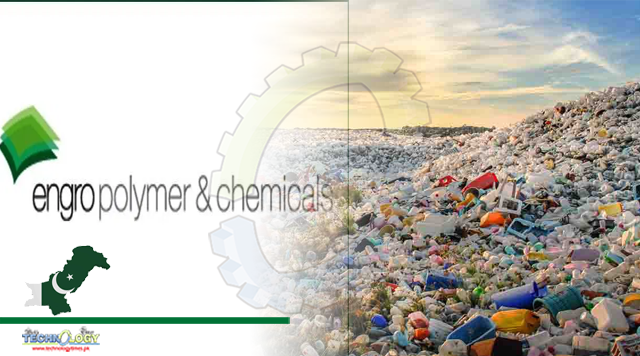Engro Polymer and Chemicals Limited plans to establish a Circular Plastics Institute, not-for-profit think tank, to promote research and development in the country’s circular plastics economy.

Pakistan faces the pervasive problem of plastic pollution as the country generated 3.9 million tons of plastic waste in 2020, and it has the highest percentage of mismanaged plastic in South Asia region, said statement from EPCL here on Thursday.
In line with Engro’s central idea of solving the most pressing issues of our time, the CPI is aimed to be a pioneer establishment in Pakistan that would streamline efforts towards the circular economy through knowledge exchange and collaboration across government, businesses, and civil society sectors.
By rethinking its plastic problem, Pakistan can benefit from effective resource management to support job creation and innovation in the economy, along with conserving the environment through lower plastic waste. Globally, countries like Sweden and Germany were reaping the benefits of promoting a circular economy by making it a key part of government policy.
The CPI is expected to undertake research on municipal solid waste management, with a focus on plastics specifically PVC. The Institute will be capable of advising legislation and policy to help Pakistan achieve its global commitments of a zero-waste future by 2030.
It will also be aligned with the global development practice to address United Nations’ Sustainable Development Goals which include sustainable cities and communities, responsible consumption, climate action, life below water, life on land and partnerships for the goals.
EPCL’s CEO Jahangir Piracha said with growing demand for plastics every year, the main problem was its responsible collection and disposal. Customization of global best practices, coupled with local knowledge, was needed to reach our sustainable development goals.
Once established, the Circular Plastics Institute would take us a step closer towards our vision of enabling a zero-waste future. The platform would also aim to increase economic activity in the country by implementing circular economy principles, eliminating waste and safeguarding natural resources, he said. The CPI would be designed by Maleeha Habib, a student of Harvard University’s Extension School.
Originally published at The nation